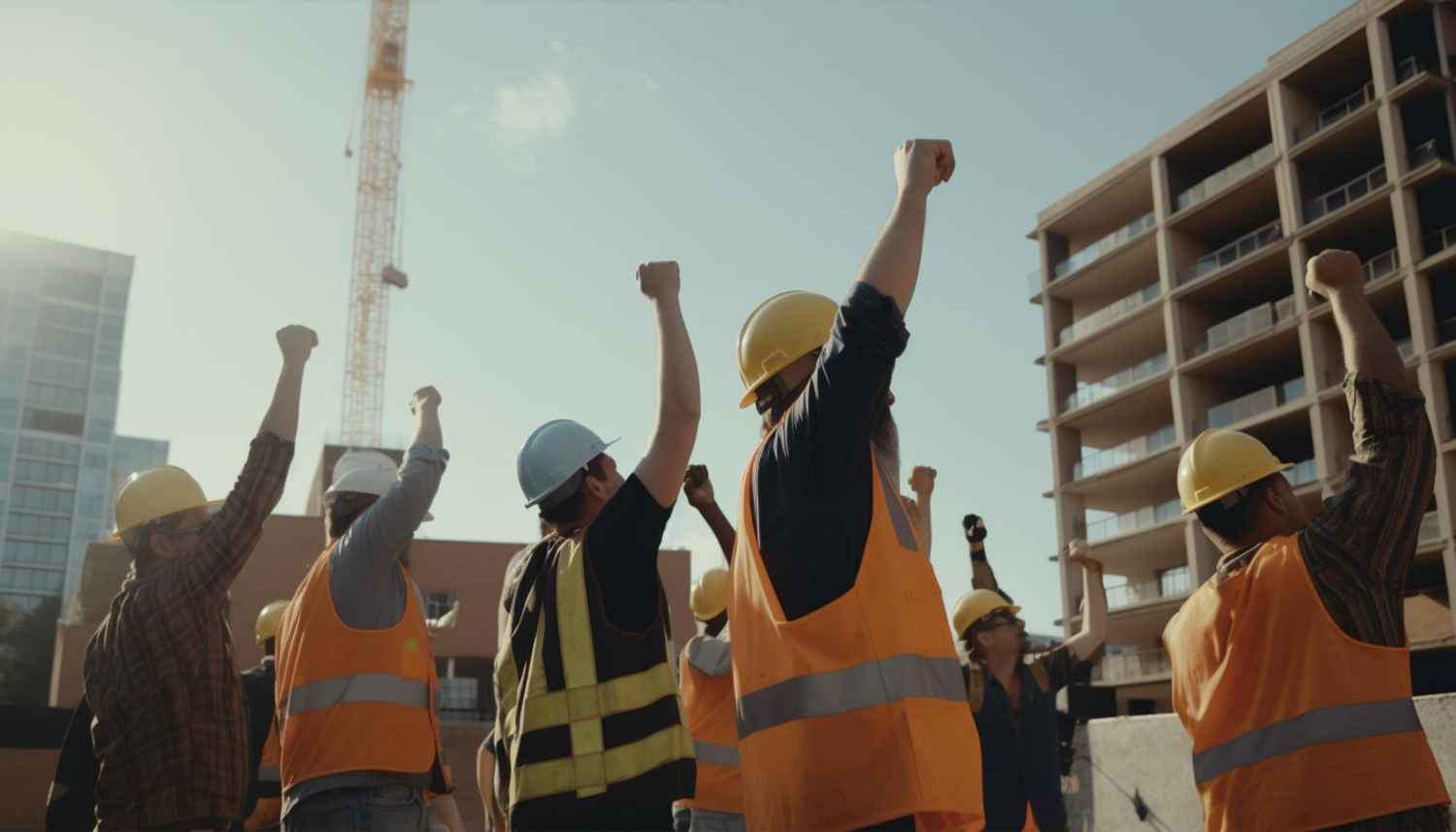All of us need to hire builders at some point. We all know that they start to work pretty early in the morning, and the building work is disruptive and noisy. Although daylight hours are ideal for work, people living in the city or construction area get disturbed because of the noise.
So, legally, what time are they allowed to work, and as a resident, what can you do about the situation if you cannot bear the noise?

What Time Are Builders Allowed to Work in the Week?
In the UK, all construction work must comply with the 1974 Pollution Control Act, whether public or industrial. The act aims to protect the public from air and noise pollution, stating that building work can be started from 8 am to 6 pm on Monday to Friday and 8 am to 1 pm on Saturdays. Furthermore, other than noisy work, it is allowed to carry out work that isn’t noisy, for instance, preparing or clearing up the sight, painting or laying turf after work. Other than that, the noisy work includes using power tools, large plant equipment and dismantling walls or scaffolding. That is why the law limits construction time. Additionally, if you want to carry out a DIY project, you should take guidance from local authorities or the council. They may guide you according to the rules and what must not be done to avoid prosecution. However, the builders will be fined and prosecuted if the rules and guidelines are not followed.When Can Builders Begin Working on Sunday?
It is illegal for builders to work on Sundays, just like they are forbidden from working on Bank Holidays. However, some councils allow work to be done on Sundays and Bank Holidays, as noisy work demands the use of special equipment and tools, they are permitted to be used only during the allotted hours for bank holidays and Sundays. Power tools that cannot be used include:- Cement Mixers
- Drills
- Generators
What Are the Rules for DIY Projects on the Weekend?
The rules are not similar for DIY jobs; they are only imposed on professional contractors and builders. Having said that, homeowners should still choose an appropriate method to carry out the work. With no legislation, local authorities sometimes suggest following the national guidelines. The National Society for Clean Air and Environmental Protection states that noisy work should conduct between 8 am-7 pm from Monday to Sunday and 10 am-5 pm on Sundays.
What Should You Do If You Hear Construction Noise Next Door?
If you are being disturbed by the construction noise and it’s outside the hours, you can file a complaint against them to the council. Initially, the council advised talking to your neighbours before they get involved. If they continue to perform the construction or demolition work, you can complain to the council, and they will release a notice to that homeowner. The notice will state how they can perform the work and avoid thousands of pounds.-
Steps to Resolve Noisy Construction Work
- Try directly talking to your neighbours and devise a schedule that suits both parties.
- If the neighbours have already informed you about the work timings, you can try avoiding the area for some hours.
- If your kids have exams,
- If you have an important meeting
- Having guests over
Do These Rules Have Any Exceptions?
When talking about particular projects, construction work is allowed to carry out outside the legalised hours. The projects may include:- Railway Lines
- Large-scale Projects
- Increasing Motorway Lanes
- What maximum noise level is allowed?
- The types of equipment and machinery are allowed
- The hours when the construction work is allowed to carry out.
- The steps to minimise disruption so that the neighbours won’t be disturbed.
What are the Rules for Tradesmen in My Home?
Any professional contractor or tradesmen must follow and comply with all the rules, regulations and restrictions. The laws and restrictions are the same regardless of the location, and the tradesmen should also be careful of their surrounding homes. Unless there is an emergency, such as a clogged drain or burst pipe, no one is allowed to perform noisy work between 11 pm to 7 am as this is categorised as night-time. This also does not mean you can do whatever you want outside these hours; it is recommended to ask for suitable hours from the local authorities; otherwise, the council can take action against you, especially if the neighbours are getting disturbed. Many councils suggest the following hours:- Mon – Fri – 9:00 am – 7.30pm
- Saturdays – 9:00 am to 5:00 pm
- Sunday and Bank Holiday – 10:00 am – 2:00 pm


